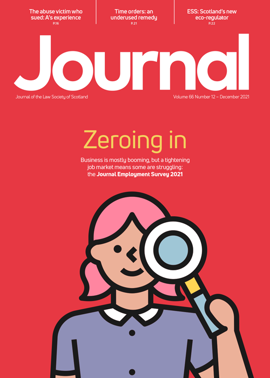Coaching: help in a fast changing world

Having been coached twice in my career, I fully appreciate the benefits provided by a qualified coach. My first coaching experience was at an early stage in my career when I had lost direction and motivation, and the second time when I was about to take on a position on the board of the company I worked for. The positive outcomes, both for myself and therefore my ability to do my job better, and in the impact on those I interacted with, brought significant benefits in my career progression.
The world today, particularly for those in positions of leadership or new in their career, has never been more stressful. The speed of change is relentless; the expectations from those you serve are high, and are unlikely to diminish. How, therefore, do you as an individual keep on top of your game?
This is not about the functional aspect – legal, operations, finance, marketing, sales etc – but how you manage yourself. How do you look after your own wellbeing, and get the best from those you interact with? This is where the benefits of coaching come into their own.

Coaching helps people execute in the new reality. A qualified coach can work with an individual to ensure that they are functioning at their optimum.
Working with a coach offers an opportunity to spend productive time with a qualified person with no axe to grind, who will not judge, is totally impartial and confidential, and is ethically sound in their conduct. In this safe environment, the individual can calmly and clearly invest in themselves using the coach to reflect openly and clearly on the key goals and/or concerns they may face. That enables them, in turn, to work through these issues without being told what to do or when, but rather by sharing and then examining the issues in a manner that does not force a solution.
Coaching is not mentoring
There is often confusion around coaching and mentoring. One of the key myths about coaching is that a coach is there to give you the answers; that a coach will tell you what to do or to think; that a coach is a mentor.
The difference between the two is best illustrated in the diagram above, created by Myles Downey, founder of the School of Coaching.
It illustrates the key distinction that coaching pulls out, whereas mentoring puts in.
Timothy Gallwey, creator of the inner game coaching method, said: “Coaching is unlocking a person’s potential to maximise their own performance. It is helping them to learn rather than teaching them.”
Coaching has also been described as: “a facilitated, dialogue and reflective learning process that aims to grow the individual’s (or team’s) awareness, responsibility and choice (thinking and behavioural)”.
A coach will work with their client and, through listening, asking relevant questions, positively challenging and helping the client to reflect, to think, perhaps using appropriate assessment tools, allow the client to work through the achievement of a goal they wish to attain. This can sometimes be a one-off session; at other times it can last over several sessions, allowing time to practise and gain insight from others where appropriate as to any changes they have noted.
Improvement through feedback
Even Bill Gates recognises the benefits of coaching: “Everyone needs a coach. It doesn’t matter whether you’re a basketball player, a tennis player, a gymnast, or a bridge player. We all need people who will give us feedback. That’s how we improve.”
So, if Bill Gates believes in coaching, who else might benefit from it? The list is endless, but some of the common reasons for coaching are: you want to become a better leader; you are questioning your career progression, feeling stuck in a groove; or you have been made aware of traits that are holding you back in your career/life.
Some of the benefits to be gained are improvement in employee performance, becoming more self-aware and resilient, and a deeper personal awareness and of your impact on others. The kind of people who often welcome coaching are those who show a commitment to continuous learning and improvement, who can see high aspirations that are exciting and often lead to great things, and who sense possibilities in themselves but need some help to maximise these.

If any of the above resonates, the next stage is to find a suitable coach and to understand the process. I can only speak from my own way of working, but trust and confidence are key for both parties to get the best from each other. An important note is that a coach does not have to come from the same background, industry or culture as the client. In fact, in many cases it can help that they do not, as it can often prevent the temptation or expectation of mentoring, i.e. giving the answer – so do not dismiss someone who is “not like you” as a potential coach for that reason.
What to expect
Coaches have their favoured processes, but this is one possible sequence:
The coach holds a brief (say 30 minutes) phone call with the prospective client, to “break the ice”. This helps to ease any nerves, answer basic questions and allow both sides to get to know a little about each other. It is not a coaching session. It primarily allows the client to ask questions and the coach to put them at their ease, explain about the process – the number and length of sessions, what is expected of both. After this, the potential client can say whether they wish to continue to the coaching session(s).
With agreement from the client, the coach may ask for some additional information which is a little more specific. This will not bias their thinking as a coach, merely offer some insights that can then be used and referenced back to as the session(s) progress:
- How do you think coaching might help you?
- Why are you looking for coaching at this point?
- What has prevented you achieving your goal in the past?
Once all the above has been completed, the coach and client will agree on dates and times for the first session, at which a deeper understanding of the goal or concern that the client has will be obtained. The sessions are driven by and for the client, but a frame of reference that is shared, if agreed, might cover:
- checking where the client is at present: what their goal(s) is/are and what is a priority to work on;
- understanding any gaps between goal attainment and the present, and going deeper into this understanding;
- clarifying the gaps and making sure the client is fully comfortable with the direction;
- next, looking to the future and the potential options identified: being clear on these and choosing the best;
- the identified options then need to be tested: what, if any, reservations are there, and how to test these;
- with the future actions identified and tested, what steps are required: timescales are agreed.
It is important to emphasise that these steps do not happen in one session; and, to reiterate, the driver is the client. The coach is there to assist, facilitate and ensure that commitments from the client are met and that what are at times tough areas are recognised and worked through.
A better place
As I indicated at the beginning, having been coached twice myself the experience is eye-opening, helpful, often fun – and the end goal of emerging in a better place of understanding yourself, with a broader awareness of your capabilities and areas that may need to be recognised is amazing. As Sir John Whitmore states, the benefits of coaching are:
- improved performance and productivity;
- improved learning;
- more creative ideas;
- improved relationships;
- greater flexibility and adaptability to change;
- more effective communication.
Regulars
Perspectives
Features
Briefings
- Criminal court: OLRS – life means life
- Corporate: Will a deal impact on national security?
- Intellectual property: IP and AI – the latest
- Agriculture: Securing successor crofting tenant status
- Succession: Back of an envelope – testamentary intent?
- Scottish Solicitors' Discipline Tribunal
- Data protection: Google off the hook
- Property: Beautifully presented tedium
- In-house: Lawyers in uniform
In practice
- Your Law Society of Scotland Council members
- Legal services regulation reform – have your say
- The Word of Gold: Whither goest thou?
- Coaching: help in a fast changing world
- The earlier the better
- Family mediation accreditation: a view from the panel
- The Eternal Optimist: Just to say thanks…
- Appreciation: Albert Vincent Sheehan
- Ask Ash: A broken work circle







